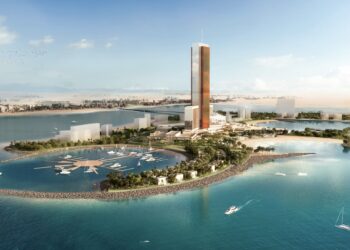Union Gaming Research Macau released the following note on 8th July:
What the Taiwan gaming referendum vote means for Macau
This Saturday, the Matsu island chain of Taiwan held a voter referendum on gaming, which was approved by a margin of about 57% to 43% (the exact opposite of the country’s first gaming referendum in Penghu). We believe that much needs to be done before the RFP process can begin. In our opinion, gaming in Taiwan is likely five years away. Herein, we highlight: 1) the next steps in Matsu; 2) what this means for Macau; and 3) some considerations (risks) for IRs in Taiwan.
Fast facts on Matsu
Matsu is a chain of islands to the northwest of Taiwan that are much closer to mainland China (10 miles away) than Taiwan (115 miles away). A ferry ride between mainland China and Matsu should take 30 minutes or less, which compares favorably to the one hour ferry ride between Hong Kong and Macau. Matsu lies off of the Chinese city of Fuzhou, which is the capital of the Fujian province and home to more than 7mm persons. This compares to the population of the Matsu islands of slightly under 10,000.
Genesis of the gaming referendum
In early 2009, the Taiwan legislature passed the “Offshore Islands Development Act,” which allowed the country’s small islands to hold voter referendums on casino gaming. This weekend’s vote in Matsu was the second such referendum. The first was held in Penghu in late September 2009. The residents of Penghu rejected the measure by a margin of 57% to 43%. Given the “no” vote in Penghu, that particular island is subject to a three-year moratorium on holding another gaming vote. The three-year time period is therefore set to expire in just over two months from now.
Next steps: legislation, licenses and RFP
The voter referendum this weekend now sets off a chain of legislative events that will likely need to come to fruition before an RFP process is held. In order for gaming to become a reality, two separate bills need to be passed: 1) a casino law bill and 2) an Integrated Resorts (IR) bill. We believe the casino law bill is the vehicle by which casino gaming is decriminalized and a regulatory body is formed, while the IR bill largely speaks for itself. Also within the casino bill, we believe the legislature will stipulate the number of licenses that will become available. It isn’t clear how many licenses will be issued and if they will allocate the same number of licenses to each of the potential island groups that could ultimately have gaming. However, we believe that only one or two IR licenses per island group is likely. The IR bill will handle such items as the level of capital investment required, the ratios between gaming and non-gaming space, and provisions on locals (e.g. entry fees like in Singapore). In theory, although unlikely, the legislature could effectively put an end to gaming expansion in Taiwan by not passing either of these bills. However, we believe that gaming expansion has enough support in the legislature to assure passage.
Following the passage of the requisite legislation an RFP process would be held. We believe a safe estimate with respect to timing would be to allocate up to one year for the implementing legislation to be worked out and then another year for the RFP process to be held. As such, we would not expect IR construction to begin until sometime in 2014. Given the typical IR build cycle of three years, we think 2017 is the earliest any IR in Taiwan will open.
Macau’s exposure might be no more than a few hundred GGR basis points
Importantly, we do not think Macau will have to deal with the Taiwan problem for at least another five years. Further, we would not expect more than two IRs in Matsu, although one IR is the probable outcome in our opinion. Without a concentration of casinos, which give customers numerous gaming options, we would think this will limit some appeal. However, offering convenience gambling is no small thing and we think the end result of a casino in Matsu would be to significantly grow the gaming revenues being generated from Fujian residents. By way of example, Macau essentially represents convenience gambling for residents of the Guangdong province given the proximity and ease of access. On a YTD basis, Guangdong has accounted for 49% of mainland visitation to Macau vs. Fujian at just 5%. With a casino in Fujian’s backyard, we would expect Macau to lose some visitation to a Matsu IR, while the same Matsu IR should grow the total Fujian outbound GGR pie. We believe this few hundred basis points of GGR risk represents the most significant exposure Macau faces.
The next question is: what about visitation to Macau from Taiwan and will it dry up once an IR in Taiwan opens? On a YTD basis, Taiwan has accounted for just 3.6% of total visitation to Macau, with visitation down 15.2% YTD (during the same period last year Taiwan accounted for 4.4% of total visitation to Macau). In our opinion, it is unlikely that Taiwanese customers to Macau will redirect a majority of visits to Matsu. This is a largely function of access. Currently, the Matsu islands are served by two small airports (Beigan and Nangan) that offer only a handful of small turboprop flights daily to Taipei (just 166,000 annual seats between both Matsu airports combined and Taipei). Upgrades would need to occur to the runways and gates to be able to handle larger planes with greater frequency. In fact, former LVS executive Bill Weidner, via Weidner Resorts Taiwan, has proposed numerous infrastructure upgrades (including to Beigan airport) as part of the company’s anticipated IR proposal. Even still, the door-to-door (customer’s house to the casino floor) travel time between Taipei and Matsu vs. Taipei and Macau will likely be minimal (roughly one hour’s difference). With this in mind, we suspect that the location with the better and more numerous supply (Macau) will garner the majority of trips originating from Taipei.
Other considerations (risks) for Taiwan IR’s: how will Beijing react?
We think the Beijing factor is the most important consideration when contemplating the potential GGR opportunity of an IR in Matsu (and the negative impact to Macau), and also the players that might pursue an IR license in Matsu.
Remember that Beijing can impact visitation at the snap of a finger
We think, the key to making an IR in Matsu an unqualified success would be unfettered access to the property by the residents of Fujian. However, it will ultimately be up to Beijing as to how easy the access will be between Fujian and an IR located in Taiwan, which doesn’t always enjoy the warmest of relations with Beijing. We do not think it is too difficult to picture a future scenario where Beijing (for any number of reasons) might restrict travel between Fujian and Matsu (or any other Taiwan IR).
Might participating in Taiwan pose a risk for Macau concessionaires?
We think there could also be risk for any of the Macau concessionaires who might seek an IR license in Taiwan. Like potential visa restrictions on PRC citizens that could negatively impact profitability of a Taiwan IR, we would expect Beijing to have a view on the appropriateness of a Macau concessionaire also operating in Taiwan. While we think the answer would ultimately be an “okay,” we would think any Macau operator is likely to seek Beijing’s approval before participating in any RFP in Taiwan.



































